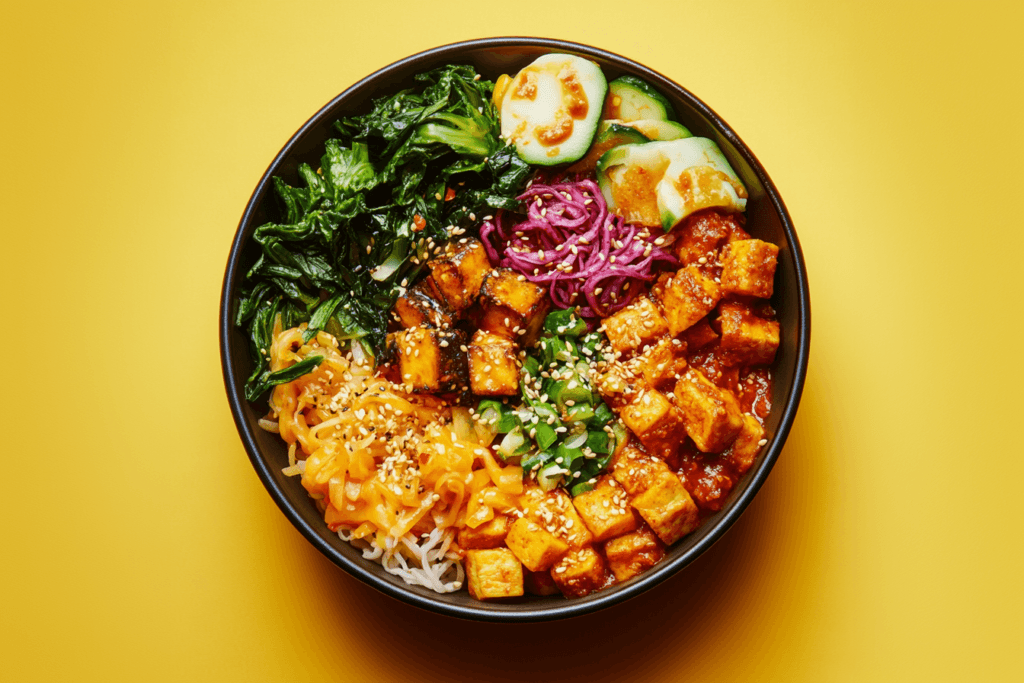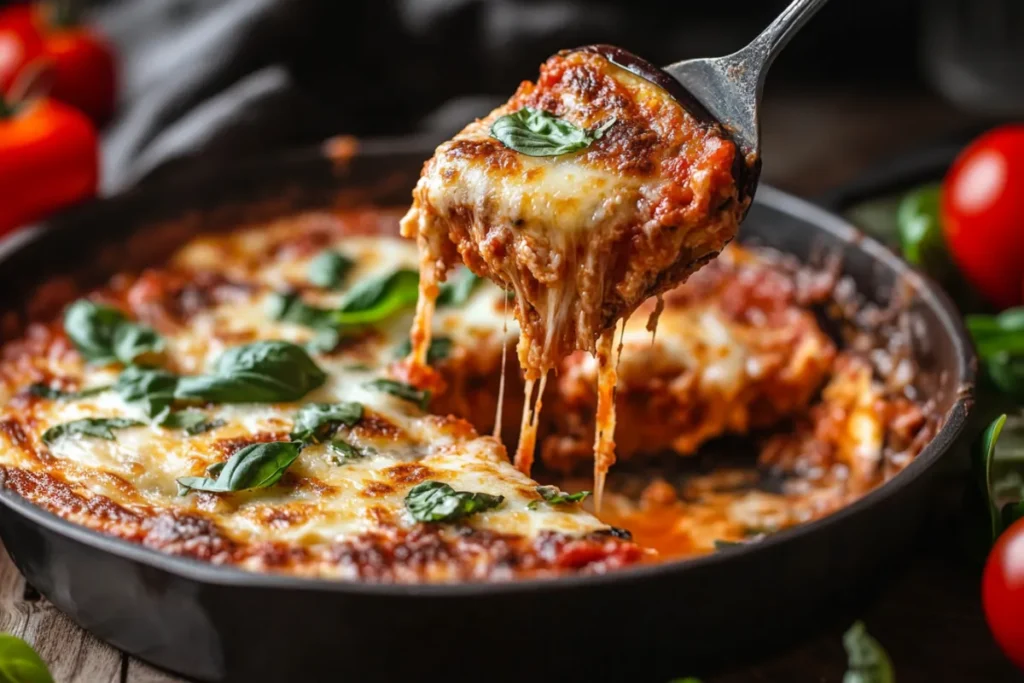Fast-casual dining has transformed the way people eat, offering quick, customizable, and often healthier alternatives to traditional fast food. Among the leading options is Bibibop Asian Grill, but many diners ask, is Bibibop processed food? This article explores Bibibop’s ingredients, preparation methods, and overall health impact to determine if it fits into the category of processed foods.
What Are Processed Foods and How Does Bibibop Compare?
To determine if Bibibop serves processed food, understanding what qualifies as “processed” is crucial. Foods fall into three main categories:
1. Minimally Processed Foods
These foods experience slight alterations for safety or convenience. For instance, washed and bagged spinach or roasted nuts maintain most of their natural nutritional content.
2. Processed Foods
Processed foods include added ingredients like sugar, salt, or preservatives to enhance flavor or extend shelf life. Examples include canned beans and smoked meats.
3. Ultra-Processed Foods
Ultra-processed items, such as sugary cereals and fast-food burgers, undergo significant industrial modifications. Manufacturers often include artificial additives, emulsifiers, and preservatives to enhance texture and taste.
For a more detailed breakdown of these categories, you can explore this guide on FoodPrint, which explains how processing affects food.
Is Bibibop Processed Food? Examining Ingredients and Health Factors
Bibibop offers an extensive menu of fresh bases, proteins, and toppings, including brown rice, grilled chicken, and sweet potato noodles. The brand emphasizes using natural and wholesome ingredients, catering to the increasing demand for minimally processed meals.
How Does Bibibop Keep Its Menu Fresh and Nutritious?
Bibibop consistently highlights its commitment to sourcing high-quality ingredients. Staff prepare these ingredients fresh daily, which helps preserve nutritional value. For example:
- Bases like purple rice and sweet potato noodles are nutrient-rich and minimally processed.
- Fresh vegetables such as spinach, cucumbers, and pickled daikon radishes arrive fresh and are prepped in-house.
- Proteins, including grilled chicken and steak, are cooked using clean methods like baking or grilling.
Research on ingredient transparency and sustainability underscores the value of brands that focus on freshness. By disclosing ingredient details, Bibibop allows customers to make informed dietary choices.
How Bibibop Prioritizes Freshness Over Processing
Although most menu items align with the principles of clean eating, some components, like sauces and dressings, include preservatives or added sugars. These small elements may qualify as processed, but the overall menu remains largely natural.
Internal Linking Opportunities:
- Discover what oil Bibibop uses in their cooking process by visiting What Oil Does Bibibop Use?
Is Bibibop Processed Food?
1. Why Bibibop Is a Healthier Alternative to Processed Meals
Most of Bibibop’s ingredients fall into the minimally processed category. Their focus on fresh vegetables, natural proteins, and whole grains reinforces their commitment to clean eating. For example:
- Vegetables: The kitchen staff chops fresh vegetables daily to ensure high nutritional value.
- Proteins: Grilled chicken and tofu are prepared with simple seasonings rather than relying on processed marinades.
- Bases: Options like brown rice and sweet potato noodles retain their original nutritional profiles with little to no industrial modification.
2. How to Minimize Processed Foods When Ordering at Bibibop
Some sauces, such as their teriyaki and spicy dressings, include added sugars or sodium to enhance flavor. While these qualify as processed, customers can limit their intake by customizing meals and selecting lighter options.
Internal Linking Opportunities:
- Learn more about Bibibop’s chicken options through Is Bibibop Chicken Healthy?
- Explore their spicy chicken varieties by visiting What Is Bibibop Spicy Chicken?
The Health Implications of Processed Foods

Experts consistently warn about the dangers of consuming highly processed foods. According to the National Library of Medicine, excessive intake of ultra-processed items correlates with higher risks of chronic illnesses such as obesity, heart disease, and diabetes.
Health-Conscious Choices at Bibibop
Bibibop’s menu aligns with the growing demand for healthier options, offering several benefits:
- Customizable Meals: Customers control their choices, reducing processed components such as heavier sauces.
- Dietary Accommodations: The menu is entirely gluten-free, catering to those with celiac disease or sensitivities.
- Vegan and Vegetarian Options: Tofu, fresh vegetables, and plant-based proteins cater to vegan customers.
Internal Linking Opportunities:
- Learn about Bibibop’s origins by visiting Where Did Bibibop Come From?
Processed Foods and Clean Eating Trends
In recent years, the clean eating movement has gained significant traction. Clean eating encourages the consumption of whole foods and discourages highly processed items. Bibibop aligns with this trend by emphasizing ingredient transparency, nutrient preservation, and fresh preparation methods.
When compared to competitors, Bibibop stands out for its dedication to quality. While fast food chains often rely heavily on processed ingredients, Bibibop opts for fresh, whole foods whenever possible. This makes it a better choice for those who value health-conscious dining.
Bibibop processed food?
Conclusion: Is Bibibop Processed Food?
Bibibop offers a refreshing alternative to traditional fast-casual dining by focusing on fresh, minimally processed ingredients and customizable meals. While some elements, such as sauces and dressings, may fall into the processed food category, these items represent a small fraction of the overall menu. For the most part, Bibibop emphasizes whole foods, natural proteins, and nutrient-dense bases, which align with the principles of clean eating.
The broader conversation around processed foods often highlights the negative health impacts of ultra-processed options. Diets dominated by heavily processed meals have been linked to increased risks of obesity, diabetes, and other chronic illnesses. In this context, Bibibop’s commitment to ingredient transparency and quality preparation methods sets it apart from many fast-food competitors.
Consumers also benefit from Bibibop’s ability to cater to diverse dietary preferences and restrictions. The entirely gluten-free menu, along with vegan and low-sodium options, ensures that individuals with specific health needs can enjoy a nutritious and satisfying meal. Additionally, the chain’s emphasis on customer customization empowers diners to make choices that align with their personal health goals.
For health-conscious individuals, Bibibop is an excellent example of how fast-casual dining can balance convenience and nutrition. By offering fresh vegetables, whole grains, and carefully prepared proteins, the chain provides a meal experience that supports both flavor and wellness. When dining at Bibibop, customers can feel confident that they are making thoughtful choices without sacrificing taste or convenience.
Ultimately, Bibibop proves that eating out doesn’t have to mean compromising on health. While the inclusion of certain processed components is inevitable in the restaurant industry, the majority of Bibibop’s offerings prioritize natural ingredients and minimal processing. This makes it a standout choice for anyone looking to enjoy delicious food while staying mindful of their dietary goals.
Whether you’re new to Bibibop or a regular customer, understanding the composition of its menu can help you make informed decisions about what you eat. With a focus on freshness, transparency, and customer choice, Bibibop continues to lead the way in redefining what fast-casual dining can be.
Bibibop processed food?




